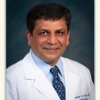(RxWiki News) Patients should learn as much as they can about their condition, and stroke patients are no exception. Healthcare systems, however, may not be adequately educating these patients.
In order for stroke patients to properly recover, they need to be well informed about rehabilitation methods that can help return lost skills, as well as about lifestyle changes that will limit the chance of another stroke.
A new study has found that health services may not be sufficiently equipping patients with the knowledge they need to best handle their care.
"Learn what educational resources your hospital offers."
Frances Mair, MD, PhD, professor of primary care research and head of general practice and primary care at the University of Glasgow in Scotland, led a systematic review of 69 published studies that reported on the experiences of stroke patients from around the world.
Dr. Mair and a team of scientists from the United Kingdom and the United States observed that post-stroke patients spend a substantial amount of time and effort seeking out, processing and reflecting on information about the management of their condition because the information provided by health services is inadequate.
Treatment for, and rehabilitation from, stroke is a lengthy process. It requires considerable personal investment from the patient. The term "treatment burden" describes the self-care practices that patients with stroke and other chronic diseases must perform. Unfortunately, treatment burden can sometimes overwhelm stroke patients, wrote the authors.
The investigators noted that patients commonly expressed four main areas of difficulty in managing their stroke. They faced problems making sense of stroke management and planning care. They had issues interacting with others, including healthcare professionals. They had difficulty following management strategies, which involved enduring institutional admissions and adjusting to life after stroke. Finally, they were frustrated making decisions about self-care.
"It's not surprising that this research showed just how many patients and their families have difficulty adjusting to life after a stroke, it quite literally is a life-changing event. Dealing with new challenges like navigating insurance policies, new rehabilitation schedules, and likely multiple healthcare appointments, might make a patient or their family feel like they're up against a lot," Dr. Shanker Dixit, Medical Director for the Stroke Program at Mountain View Hospital and Summerlin Hospital, explained to dailyRx News. "However I'd encourage them to remember that the hospital and healthcare providers they are working with want the best of care for them as well."
In addition, patients reported that they frequently encountered barriers to receiving information from health services. They said that the providing of information is lacking, inadequate time is allocated to them, timing is inappropriate or information is given in a form that is incomprehensible.
Fragmented care and poor communication between stroke patients and clinicians, as well as between healthcare providers, can mean that patients are ill-equipped to organize their care and develop coping strategies. This makes it less likely that they will stick to prescribed management of their condition, said the authors.
"Stroke patients, their families and advocates should endeavor to keep lines of communication as always open with all their doctors and nurses. Never be afraid to ask questions, and remember that no one wants you to be overwhelmed. Help can only be available if you're first able to ask for it," said Dr. Dixit.
"There is a need to transform the approach to care provision so that services are configured to prioritize patient needs rather than those of health care systems," the authors wrote.
This study was published in this week's PLOS Medicine.
The research was funded by Chief Scientist Office, part of the Scottish Government Health and Social Care Directorates. Federal funding was provided from the US National Institutes of Health (National Institute of Nursing Research) to conduct research on the burden of treatment concept.







